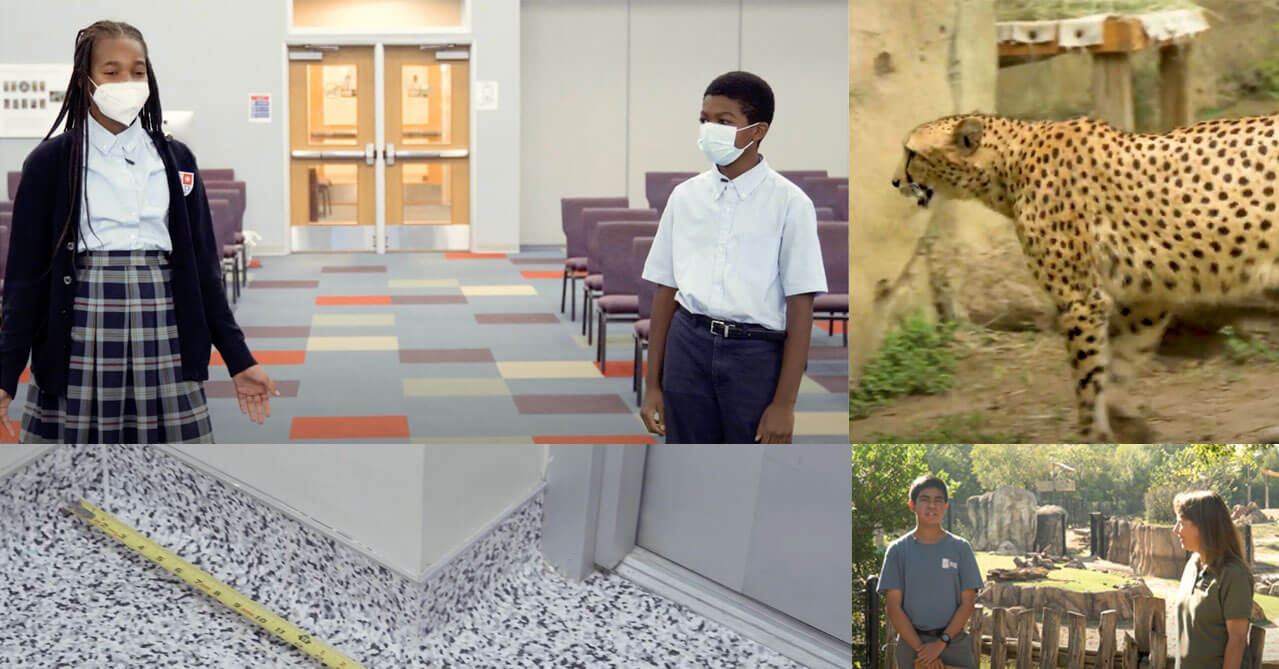Project Research
The primary research questions for this project are: How does posing mathematical scenarios in community-embedded Math Walks impact learners’ attitudes about mathematics? How can experiencing augmented reality overlays on real-world objects highlight mathematical principles and allow learners to see math in the world around them? How can learners and informal educators be engaged as disseminators of content they create and as reviewers of mathematical content created by others?
Institutional Review Board approval for our research will be obtained in Year 1, and IRB Advisory Board meetings will be conducted each year. Each of the five studies will be disseminated the year after it is conducted.
Year 1 Study
In Year 1, our study will examine learners at three informal learning sites as they create Walk Stops without the game. 12 learners in grades 4-8 at each site will experience an already-created Math Walk for the site before exploring different locations as a group to take photos and pose questions. They will then write and present a script for 1-2 new Walk Stops using their photos, questions, and related answers.
The research questions are: How does participating in and creating Walk Stops impact learners’ attitudes towards math? What are the key challenges and scaffolds for learners creating their own Walk Stops at informal learning sites? What is the quality of the Walk Stops learners create, and are they able to increasingly apply a math lens to their own lives?
Year 2 Study
In Year 2, we will again engage 12 learners at each of three informal learning sites in activities similar to Study 1. However, all activities will take place within a prototype version of the MathFinder game.
The research questions are: How does using a game like MathFinder impact learners’ attitudes towards mathematics? What are the key challenges and scaffolds for learners creating Walk Stops in the game? What is the quality of the Walk Stops learners create, and are they able to increasingly apply a math lens to their own lives?
Year 3 Study
In Year 3, we will study 20 learners at each of six informal learning sites as they use the MathFinder game. Learners will experience existing Walk Stops with a focus on posing their own questions and problems at each stop. The learners will randomly experience a mix of stops with or without augmented reality overlays during the study. During 2-3 additional sessions, students will engage in the process of creating their own Walk Stops as described in Study 1.
The research questions are: How does experiencing augmented reality overlays change learners’ attitudes towards math, the nature of the problems they pose, and how they talk about math concepts in their surroundings? What difficulties do learners experience with augmented reality overlays of everyday objects and scenes?
Year 4 Study
In Year 4, we will again study 20 learners at each of 6 informal learning sites as they use the MathFinder game. All learners will first experience existing Walk Stops, including augmented reality overlays. Then students will be randomly assigned to two conditions. One group will participate in three sessions where they experience new Walk Stops created by informal educators. The other group will create their own new Walk Stops during three sessions.
The research questions are: How does creating versus receiving math walk stops change learners’ attitudes towards math? To what degree are learners in each group able to transfer their learning by increasingly applying a math lens to their own lives? How do conversations and interactions between learners and between learners and informal educators differ if learners are positioned as creators rather than receivers?
Year 5 Study
In Year 5, we will study 12 learners and one informal educator at each of eight informal education sites. The informal educator uses the MathFinder game to guide the learners on an existing Math Walk and facilitate learners designing and submitting their own Walk Stops. The learners will then test Walk Stops created by others and give feedback. Finally, each group will revise their Walk Stops based on the feedback and present one Walk Stop to others, including their families.
The research questions are: To what degree can learners identify issues with Walk Stops that they review? What does the experience of giving feedback on others’ stops look like, and what are its effects? What support do learners need to be critical and provide high-quality feedback, and what support do informal educators need to best facilitate this process?


